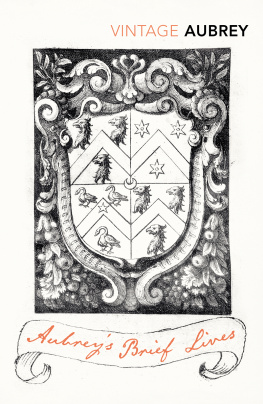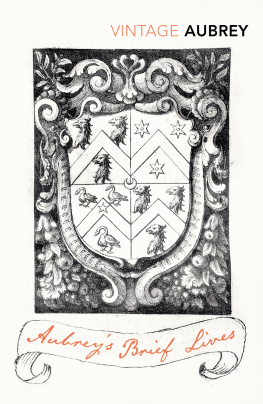PREFACE
Table of Contents
I T is not easy in a few words to account for the strange Oriental spell that Spain has exercised over many minds nor to explain the potency of its attraction. For indeed the great Peninsula possesses a special spice and flavour. It has not the immemorial culture of Italy, nor the pleasant smiling landscapes of France with her green meadows and crystal streams. The old Iberia, that dura tellus, has a peculiar raciness. Its colour is often harsh and crude; many of its districts are barren and discomfortable. The bleak and rocky uplands and the ragged sierra ridges cut the country into sharp divisions and cause it to be thinly and variously populated. On those uplands the breath of the wind is often icy and the sun strikes with a biting force. Great parched and desolate plains extend treeless and unprotected two thousand feet above the sea. The villages at distant intervals are of the colour of the soil, and scarcely to be distinguished from a mass of yellow-brown rocks. Morning and evening a string of mules may be seen outlined on the horizon, for the peasants set out in bands to till their distant fields; or a shepherd with his flock of sheep, or goats, relieves the strange monotony of this dust-laden windy desert. Nothing could be sadder or less harmonious than the peasants harsh and strident singing, the very peculiarity of which has, however, a piquancy and charm. Hard too is their language, with its clean gutturals, far rougher and manlier than the musical sister-tongue of Italy. All points to a like conclusion, that this is no country of comfort and soft languorous delight, but of a quaint and forcible originality, where the most jaded mind may be braced and inspirited and find a fresher and more stirring life.
In Spain the sharpness of contrasts precludes any feeling of weariness or satiety. There are regions of luxuriant growth and African sun bounded by mountains of eternal snow. Through the plain a river glides among orange groves and grey olives; in the shaded patios of the city silver fountains keep the air cool and fresh, and on the coldest night in winter the temperature is still some degrees above the freezing-point. Yet here, in the most fiery heat of summer, we may lift up our eyes to the hills and look on the snowy sierra against the deep blue of the sky; and if a shower, in this region of little rain, falls upon the low-lying districts, it adds but another coat of whiteness to the neighbouring range. It is indeed a strange and fascinating land, a Land voll Sonnenschein and fierce blinding light, yet a land of shrill, piercing blasts and icy air, a land of many various elements both of climate and population. It is no wonder that its inhabitants are of a character strongly individual and preserve the original Iberian strain. A racy pithiness of speech is theirs. In no country are proverbs more common, and a string of them can indeed form a peasants conversation, pungent as the rosaries of red piments that hang on the balconies of farms.
It was in Spain that the rogue-story, the novela de pcaros, originated, and the Spanish novelists of the last thirty years have given free rein to the local types of various parts of Spain. Nowhere has provincialism continued to be so clearly marked. In other countries better communications have corrupted the local manners into a conformity of excellence. In Spain the nature of the country, with its rough mountain barriers and turbulent unnavigable rivers, still protects originality and keeps the character of the provinces distinct, and the native of Andaluca continues to despise the native of Galicia and to be ridiculed by the native of Castille. This does not make for material prosperity, but it constitutes a country of the picturesque and unexpected, a country where imagination is not dead, and where the artist and poet find their true home. Not the least attraction to them perhaps is the Spanish improvidence and absence of method, and the gay living from hand to mouth. An unwary traveller in the wilder districts may easily find himself half-perishing from scarcity of food, and lost in an intricate labyrinth of ways between far-distant villages. A bad thing, sirs, it is to have a lack of bread, sang the poet of the twelfth-century Poema del Cid. The hardy peasant of the poorer regions lives scantily from day to day on the product of the niggard soil, won by patient labour. The peasant in more fertile parts does not necessarily fare better, but he labours magnificently less. The deliberate method of prosperity and success is held in small esteem. The mighty Empire of Spain was in fact the affair of a generation only. From the time of Philip II. onwards the Spanish Empire might aptly be compared with the Cids corpse, for, though by its prestige and the favour of heaven it might continue to reap fresh victories, it was nevertheless irrevocably dead and awaiting dissolution. And it is the improvidence of Spain that has charmed the foreigner. For, eager as he is to admire its poetic aspects, in his inmost soul he often regards himself as incomparably superior, and hurries home to civilization with a sheaf of curious details negligently gleaned.
The courteous Spaniard conceals his contempt for the foreigner, but were he privileged to read the numerous sketches, scenes, and saunterings published yearly of Spain, he would have some scope for legitimate amusement. A faint remonstrance has indeed been heard in the Peninsula against the idea of Spanish grandees lying in wait at dark corners to rob a French journalist of his fortune. But mostly they are content to let the foreigner continue in his ignorance. For stern and melancholy Spain retains her secret, and is not to be won from her Oriental impenetrable mystery by any wiles. Unchanging and impassive, her cities seem to mock the stranger, and the roughness of the intervening wildernesses discourages him. But he returns again and again to this remote and medival country, that in his practical eyes should be so rich and is so poor. The repulses he receives whet his curiosity and increase his ardour. Yet Spain is not, in spite of its many tourists, a country of foreign colonies. To the Englishman this fact brings a striking novelty, for he may visit Switzerland and Italy and France and scarcely leave the atmosphere of England, but in Spain he will find no difficulty in following Bacons advice to the traveller in foreign countries to sequester himself from the company of his countrymen.
I
SPANISH CHARACTER
Table of Contents
I. Stray Opinions
Table of Contents
T O collect a mass of isolated and contradictory opinions concerning the Spanish is a comparatively simple task, although it is difficult or impossible to derive from them a consistent picture of Spanish character. To Wellington they are this extraordinary and perverse people, to whom to boast of Spains strength was a natural weakness. Procrastination and improvidence are their besetting sins, says Napier, and of their conduct in the Peninsular War: Of proverbially vivid imagination and quick resentments, the Spaniards act individually rather than nationally, and, during this war, what appeared constancy of purpose was but a repetition of momentary fury generated like electric sparks by constant collision with the French. The Spaniards are perfect masters of saying everything and doing nothing. They have dignified sentiments and lofty expressions, but taken with their deeds these are but a strong wind blowing shrivelled leaves. In the arrangement of warlike affairs difficulties are always overlooked by the Spaniards, who are carried on from one phantasy to another so swiftly that the first conception of an enterprise is immediately followed by a confident anticipation of complete success. Though they are hasty in revenge and feeble in battle, they are patient to the last degree in suffering. To the peasants he allows a susceptibility of grand sentiments. They endure calamity, men and women alike, with a singular and unostentatious courage. But their virtues are passive, their faults active, and, instigated by a peculiar arrogance, they are perpetually projecting enterprises which they have not sufficient vigour to execute. To neglect real resources and fasten upon imaginary projects is peculiarly Spanish. A French writer of the same period, General Marbot, contents himself with observing that the Spanish ont beaucoup conserv du caractre des Arabes et sont fatalistes; aussi rptaient-ils sans cesse Lo que ha de ser no puede faltar, but adds that ils ont un mrite immense, cest que, bien que battus, ils ne se dcouragent jamais. Turning to earlier centuries we find that in Livy and Strabo the Spaniards are obstinate, unsociable, silent, dressed in black, despisers of death, very sober. In the centuries of Spains greatness the comments naturally thicken, although they are often not easily reconcilable. To an Italian, Paolo Cortese, at the beginning of the sixteenth century the Spanish are, in a shower of epithets, ambitious, good-natured, curious, greedy, contentious, tenacious, magnificent, suspicious, sly. Another Italian, Paolo Tiepolo, later draws a distinction[1] between those who have travelled and those who have not left Spain, those former being per la maggior parte avvisati, diligenti, tolleranti. In Pepys we read of the ceremoniousness of the Spaniards, and that the Spaniards are the best disciplined foot in the world; will refuse no extraordinary service if commanded, but scorn to be paid for it as in other countries, and of the plain habit of the Spaniards, how the King and Lords themselves wear but a cloak of Colchester bayze, and the ladies mantles in cold weather of white flannell. To a learned Spaniard, Masdeu, they are, to quote but a few of his judgments, lively, swift in conception, slow and thoughtful in coming to a resolution, active and effectual in carrying it into execution. They are the stoutest defenders of religion, and masters in asceticism. Their disinterestedness and honesty in commerce is known to all. They are frugal at table, especially averse from any excess in drinking. In conversation they are serious and taciturn, not giving to biting speech, courteous, affable, and pleasant; they hate flattery, but they respect others and look to be respected themselves. They speak with majesty, but without affectation. They are generous, serviceable, kindly, and have a pleasure in conferring benefits, and they exalt things foreign more than their own. They have envy, pride, and a love of glory, but with noble, redeeming qualities. In their attire they are neat and moderate; when they go abroad they are dressed well and smartly, but with a befitting gravity. They spend with magnificence and extravagance. A French traveller, Mme. dAulnoy,[2] in the seventeenth century, says of the Spanish that Nature has been kinder to them than they are to themselves; they are born with more wit than others; they have a great quickness of mind joind with great solidity; they speak and deliver their words with ease; they have a great memory; their style is neat and concise, and they are quick of apprehension; it is easie to teach them whatever they have a mind to; they are perfect masters in Politicks, and when there is a necessity for it they are temperate and laborious.... They are patient to excess, obstinate, idle, singular philosophers; and, as to the rest, men of honour, keeping their words tho it cost them their lives. She considers their greatest defect to be a passion for revenge, and speaks of their fantastick grandeur. A short account by an Englishman in 1701, has little good to say of the Spanish, except that they have an incomparable Zeal to plant the Catholick Religion. He notes their sluggishness, their immorality, and it is, moreover, impossible to distinguish a Spanish Cavalier from a Cobler, while most of their houses are of earth and like Mole-hills, but one storey high. They have an esprit orgueilleux, and treat strangers de turc maure, says a Frenchman of the same period,[3] so that the Englishman may have had some slight, some













